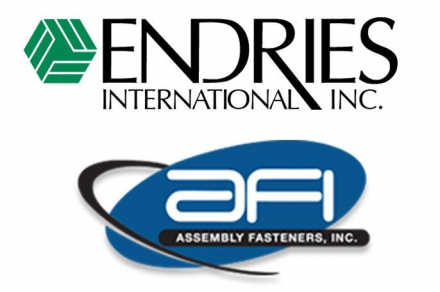News
December Headline—Carbon Reducing Companies
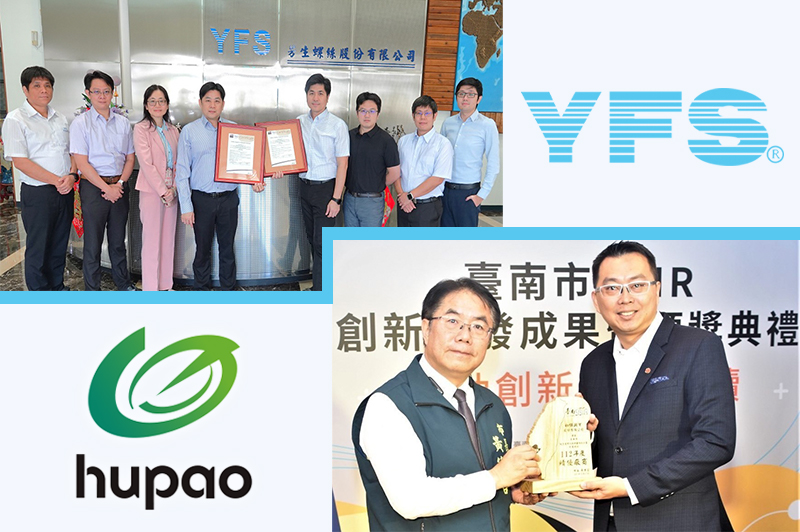

Add to my favorite
2024-12-20
FANG SHENG SCREWS- To Obtain More Carbon Reduction Certificates
A 10-year Program to Meet Customer Needs
With the CBAM to be fully implemented on 01/01/2026, Taiwanese leading socket screws and special products manufacturer, Fang Sheng Screws, has been making staged achievements in corporate organization and carbon reduction in product manufacturing with proactive and forward-looking pace and management in recent years.
After obtaining the ISO14067 product carbon footprint certification issued by French AFNOR International, Fang Sheng further completed the audit of ISO14064-1 greenhouse gas (GHG) inventory certification in Nov. 2024, which is expected that a formal certificate will be issued upon completion of the final review by the verification unit. After the introduction and implementation of ISO14064-1 and ISO14067, Fang Sheng will start the application for ISO14068-1 carbon neutrality certification in the future. Through the full implementation of CBAM-related int’l standards, Fang Sheng will demonstrate to global partners and customers its capability of achieving the goal of carbon neutrality and enhance its competitiveness together with customers, hopefully gaining more advantages and opportunities for itself in response to the reshuffling effect that may be triggered by CBAM in the future market.
Real Carbon Management in Compliance with ISO14064-1 and ISO14067
“Net Zero & Carbon Reduction” is not a vague slogan to tell customers, but a concrete practice to be implemented within the organization and product manufacturing for Fang Sheng. Since the EU CBAM declaration places special emphasis on the verification and management of carbon emissions data of manufacturers, Fang Sheng has focused on the introduction and implementation of the ISO14067 carbon footprint and ISO14064-1 GHG inventory standards from the very beginning. For the part of carbon footprint, it first introduced the ISO14067 standards to fully understand the entire product life cycle from raw material, manufacturing, packaging, transportation to waste disposal, and the carbon emissions data at each stage, and then further appoint various departments to implement specific carbon management. After that, for the part of GHG inventory, the ISO14064-1 is introduced to understand the carbon emissions within the organization in order to quantify, monitor and report the data to ensure their transparency and consistency. In addition, Fang Sheng also maintains close cooperation with external organizations to assist in solving difficulties encountered in carbon reduction management. Moreover, the company conducts regular carbon emission audits to ensure the effectiveness of carbon management measures.
“The emergence of CBAM has clearly pointed out that carbon reduction is the future direction of the fastener industry, which is why Fang Sheng has been actively involved in the ISO 14064-1 and ISO 14067 certifications. At this stage, we have already grasped the carbon emission data inside and outside the organization, and we are working hard to implement internal carbon management. In the future, we will further introduce the ISO 14068 carbon neutrality standard to verify whether we have achieved our carbon neutrality goal in the medium and long term,” says Jess Tsai, General Manager of Fang Sheng, responsible for coordinating and planning the overall direction of carbon management.
“From the perspective of energy consumption in production, the introduction of ISO14067 and ISO14064-1 not only allows us to better understand whether the carbon emissions and energy consumption data of our production lines are normal, but also helps us optimize the management process, and at the same time, allows us to be more meticulous in carbon management.” says Ben Tsai, Vice Factory Director, who is on the front line of production line management.
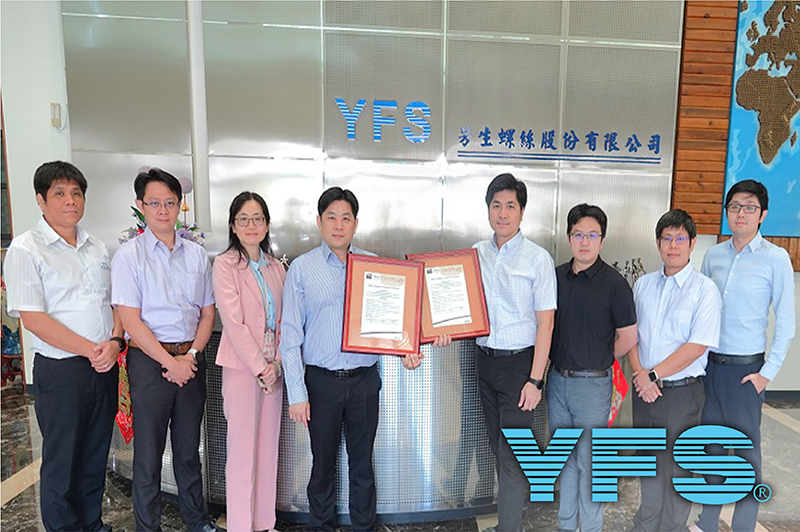
Decade-long Carbon Reduction Plan: Installing Solar Panels and Replacing High-Energy-Consuming Equipment as Priorities
Fang Sheng's 10-year carbon reduction plan integrates many sub-projects, among which the addition of self-generated and self-consumed solar panels and the upgrade and replacement of heat treating & spheroidizing furnaces are priorities in the next few years. It is known that the installation of solar panels in Plant 2 is divided into two phases. The first phase has already been completed and the second phase is expected to be completed no later than Q1 2025. It is estimated that the installation of solar panels alone will help Fong Sang reduce carbon emissions by at least 15-20% annually. As for the replacement of heat treating and spheroidizing furnaces and improvement of energy consumption, it is expected to be promoted gradually in the next few years. In addition, by prioritizing the improvement of energy-consumption in power and heat treatment, Fang Sheng expects to accelerate the achievement of significant results in carbon reduction. In the future, it does not rule out the possibility of more diversified carbon reduction in areas such as energy storage equipment and hydrogen reuse.
Preparations for ISO 14068-1 to be Initiated in 2025
Although Fang Sheng has already obtained the ISO14067 certification and the procedure for getting the ISO14064-1 certification has been almost done, Fang Sheng's effort on getting more CBAM certificates is still ongoing. In 2025 the preparations for the ISO14068-1 certification will be commenced, including the education and training of relevant personnel, and further development of medium- and long-term carbon reduction planning based on the ISO14064-1 (Scopes 1 & 2) and the ISO14067. It is hoped that through prior education and training, relevant personnel will be able to deeply understand the actual meaning of the regulations and review whether the actions taken based on ISO14064-1 and ISO14067 are correct and appropriate, and will set specific carbon reduction targets and implementation directions based on the training results to ensure that the future carbon reduction strategy is more systematic and forward-looking. It is expected that in a few years external organizations will be invited to successively provide specialized counseling to accelerate the certification process through professional resources, shorten the time to achieve carbon neutrality, and move towards the goal of sustainable development in a comprehensive manner.
“We hope to reduce our carbon emissions by 15-20% between 2026 and 2027, with a further 10% reduction after 2028, and a 30% reduction in total by 2030 as the first phase target,” says G. M. Tsai.
CBAM Declaration is Just a Basic Requirement, Whereas Carbon Reduction Plan is the Key
CBAM will definitely become a benchmark for customers to select suppliers. It is expected that the verification criteria will be finalized in Q3 2025, which will enable manufacturers to comply with the law in the declaration process. Fang Sheng is not worried about this and says that they are well prepared, as they have a complete understanding of the declaration details, fully understand what information is required by CBAM, and more importantly, have drawn up a complete medium and long-term plan for their future carbon reduction targets.
“While CBAM declaration is decisive for our customers' ability to obtain lower tariffs, our customers are more concerned about whether or not their suppliers have a long-term carbon reduction plan, which is also a key factor in evaluating if their suppliers have a future. Considering the budget of carbon reduction programs, large companies like Fang Sheng are definitely more qualified to do so. In anticipation of future CBAM-like regulations and carbon reduction requirements in various countries, customers are likely to demand more from their suppliers. We will do our best to keep our customers informed of Fang Sheng's future carbon reduction plans, so that they can be assured that we will be a long-term strategic partner,” says Jason Tsai, Vice General Manager.
“What EU importers really need is a stable supplier with a long-term plan for carbon reduction. Many large European distributors have internal mechanisms to evaluate suppliers and are actively consulting Fang Sheng on future plans and production capacity. Therefore, being on the front line of production, Fang Sheng has advantages such as understanding carbon management and having a complete medium- and long-term carbon reduction plan, which will definitely help our customers comply with regulatory requirements and be competitive in the right way,” says G. M. Tsai.
CBAM is going to influence the industries from all aspects, and apart from Europe, other countries are also likely to introduce more carbon reduction requirements. Fang Sheng, which has a comprehensive plan for CBAM certification and carbon reduction programs, is ready to meet the challenges that may arise in the future.
Fang Sheng's contact: Jason Tsai, Vice General Manager
Email: jason@mail.yfs.com.tw
Best 10 Performer of Tainan SBIR — Hu Pao's “Waste Oil Recycling Trough” Lowers Carbon Emission in Nut Manufacturing
Hu Pao Industries, a professional nut manufacturer in Taiwan active in introducing the concepts of ESG sustainability and net-zero transformation and aiming to achieve carbon neutrality and become a low-carbon solution provider, has recently participated in the SBIR program promoted by Tainan City Government to encourage SMEs to carry out research on industrial technology and product innovation and has been awarded one of the Best 10 performers among the 55 grant receivers in 2024. Hu Pao General Manager Bill Wang attended the awarding ceremony on Nov./25/2024 at WinWin Innovation & Incubation Base in Xinying (Tainan) and presented to Tainan City Mayor Wei-Che Huang the award-winning “Carbon Reduction Savior- Waste Oil Recycling Trough”.
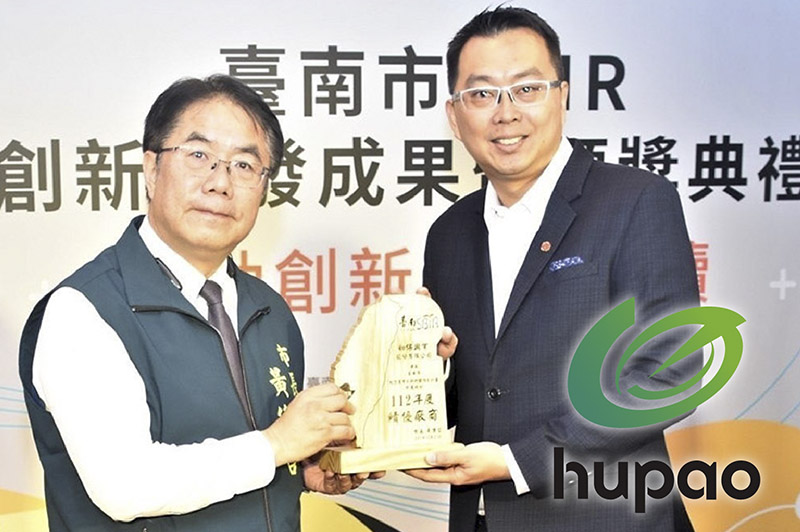
Reducing the pressure of new product development, promoting technological innovation, expanding markets, establishing alliances, enhancing corporate image and brand value, and strengthening growth potential are the ultimate goals of Hu Pao's participation in the program. In order to obtain the max. grant of NT$1 million per case, Hu Pao actively attended the briefing sessions and drew up the plan, prepared required documents and integrated internal resources to submit for review, strengthened the external cooperation, and continuously improved and adjusted the plan during the implementation to make it pass the verification in the end.
Carbon Reduction Savior - Waste Oil Recycling Trough Realizes Resource Recycling
Waste oil generated from production lines will have a great impact on the environment if it is not properly treated. The Waste Oil Recycling Trough introduced in Hu Pao's production lines converts waste oil into reusable low carbon emission lubricant through innovative technology, effectively reducing the impact of waste oil and carbon emission on the environment, lowering raw material costs, and realizing the purpose of recycling and reusing resources.
“We’ve seamlessly integrated the Waste Oil Recycling Trough into the production lines to streamline operations and improve resource efficiency. We also monitor the equipment data in real time through the Internet, which is then sent to the ERP system for the management to make accurate decisions. In addition, staff training has been strengthened to familiarize them with equipment operation and make them understand the environmental benefits. In this way, not only will our carbon emissions meet int'l standards to enhance competitiveness, but we will also be able to respond to possible policy changes after the implementation of CBAM. This is also an important step for us to continuously attract sustainability partners to create long term economic benefits,” says Hu Pao G.M. Wang.
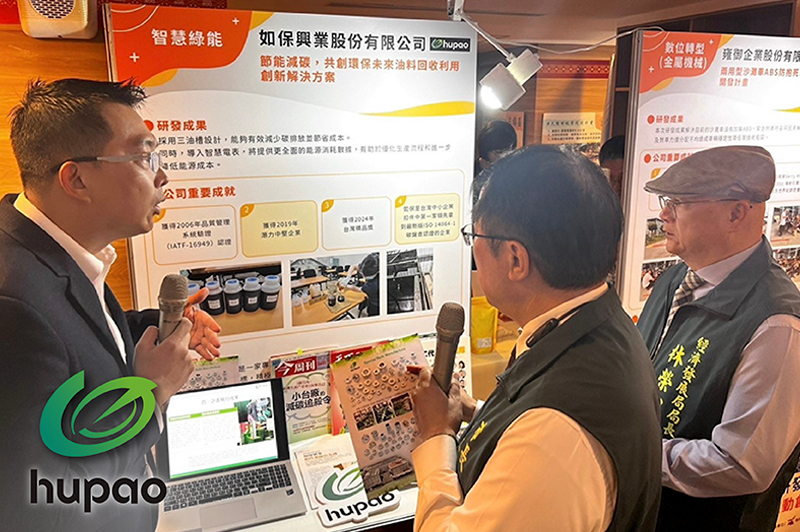
Taking the Lead and Encouraging the Industry to Lower Carbon Emission Together
Hu Pao winning the award is exemplary for other small and resource-constrained enterprises, and will surely have a positive effect on encouraging carbon reduction in the industry. It is worthwhile for the industry to learn from Hu Pao in terms of how to effectively conduct carbon inventory and data management, improve resource efficiency and reduce operating costs, respond to CBAM reporting and environmental regulations, the exchange of experience and cooperation in cross-sector alliances and platforms, and how to enhance its image and attract customers through carbon reduction measures.
As the only fastener enterprise in Tainan in 2024 to receive the award, G.M. Wang noted, “The establishment of a carbon inventory mechanism and calculation, upgrading to high-efficiency and low-energy-consumption equipment & manufacturing, shortening transportation distances from suppliers, switching to renewable energy, reporting in accordance with CBAM, strengthening technology and material R&D, and reinforcing employee training and carbon awareness are definitely the future directions Taiwan fastener industry should focus on.”
Besides SBIR, Hu Pao has also received grants from the “Low Carbon and Smart Upgrade and Transformation Counseling Program for Large and Small Manufacturers”, the “Low-Carbon Counseling Program for Small and Medium Manufacturers”, the “Industrial Energy Saving Counseling & Efficiency Improvement Program”, and the “Smart Carbon Reduction Subsidy Program”.
ESG Sustainability & Net Zero by 2050
Under the principle of sustainability, Hu Pao has set itself a carbon reduction target of 60% by 2032, 80% by 2042, and net zero by 2050. It has also introduced the ISO50001 energy management system, purchased low-carbon materials, used reusable resources, developed green energy concepts, emphasized on environmental protection and social responsibility, provided free veggie lunches for employees, and joined “Zero⁺ College”. It has been responding to CBAM with proactive strategies and forward-thinking. In addition to obtaining ISO 14064-1:2018, it has continued to monitor carbon emissions data, increase employee participation in carbon reduction, invest in new technologies/equipment, strengthen cooperation among industry, government, and academia, and participate in int'l exhibitions, so as to let customers know its efforts in carbon reduction.
“Taiwanese companies need to be more proactive in responding to geopolitical risks, global economic uncertainties, environmental policy requirements, and the need for technological innovation. Only by adjusting supply chain strategies, strengthening technology R&D, and enhancing the added value of products can they remain competitive in the fierce int'l market,” says G. M. Wang.
Hu Pao's contact: Bill Wang, General Manager
Email: bill@hupao.com.tw
如保
SBIR計畫
10大優企
廢油循環槽
減碳
CBAM
ESG
永續
淨零
Hu Pao
Waste Oil Recycling Trough
carbon reduction
net zero
sustainability
芳生
內六角孔螺絲
扣件
國際展會
惠達雜誌
匯達實業
外銷媒合
廣告刊登
螺絲五金
五金工具
紧固件
台灣扣件展
印度新德里螺絲展
越南河內螺絲展
墨西哥瓜達拉哈拉螺絲展
美國拉斯維加斯螺絲暨機械設備展
波蘭克拉科夫螺絲展
義大利米蘭螺絲展
德國司徒加特螺絲展
FASTENER FAIR INDIA
FASTENER FAIR VIETNAM
FASTENER FAIR MEXICO
FASTENER POLAND
FASTENER FAIR ITALY
FASTENER FAIR GLOBAL
fastener world






